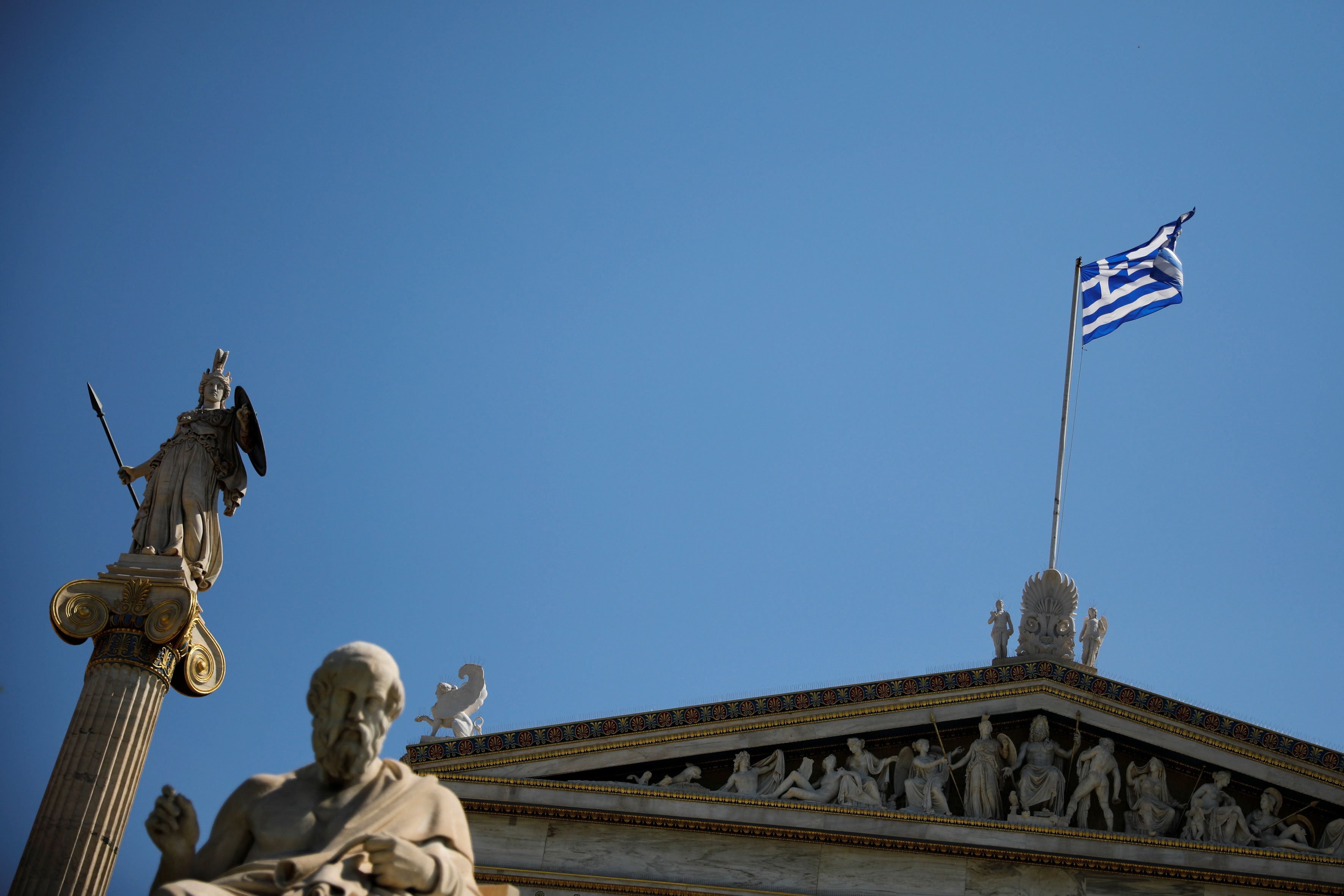August 21, 2018
Over the past eight years, crisis-wracked Greece has received around $360 billion from other European countries and the IMF in a bid to stave off economic collapse. In exchange, the country promised to drastically cut spending, in particular by slashing pensions and public-sector salaries.
Well, as of yesterday, Greece has received its final loan payment from its European creditors, meaning that its nearly decade-long “bailout” is complete. But there are a number of reasons why Greeks aren’t smashing plates just yet—after all, the economy is still 25 percent smaller than when the crisis began, and household incomes have plummeted by more than 30 percent during that time.
Here to explain a few more key caveats is fellow Signalista Leon Levy, just back from a visit to his Balkan motherland:
First, Greece’s gargantuan debts haven’t disappeared. In fact, this year Greece’s debt burden will top out at nearly 190 percent of GDP. The hope, among optimists, is that this will fall to 150 percent of GDP by 2023. Overall, Greece will be saddled with the bailout debts until well beyond the middle of this century.
Second, although growth is expected to hit 2 percent this year, the governing Syriza party has done little to inspire investor confidence beyond the bare minimum required by the bailouts. In fact, the government, still fearful of a bank run by disillusioned Greeks, continues to restrict ATM withdrawals for its own citizens. It’s hard to muster foreign confidence in an economy under conditions like these.
Lastly, as Greece looks to move ahead, it faces a critical challenge: over the last ten years, more than half a million Greeks, among them many of the country’s best-educated people, have fled in search of better opportunities abroad. Given the precarious situation at home, most of them are unlikely to return. That means fewer innovative businesses that can help repair Greece’s economy, a smaller tax take for the Greek state, and a longer-run demographic crunch in which there are too many elderly Greeks and not enough young workers to fund the pension system.
So yes, Greece successfully exiting the bailout phase of its economic recovery is better than the alternative—Greece going back hat-in-hand to request another financial lifeline—but it’s more a stepping stone than a milestone. Greece’s odyssey from financial wreckage to return is far from over.
More For You
After the US captures Nicolás Maduro, is Venezuela headed for stability, or chaos? Ian Bremmer talks to Senator Ruben Gallego and Frank Fukuyama about what comes next.
Most Popular
Think you know what's going on around the world? Here's your chance to prove it.
Passengers enter a shared taxi in Dnipro, Ukraine, on January 8, 2026. Following a massive Russian drone attack on the energy infrastructure of Ukraine’s southern regions, most consumers in Dnipropetrovsk and Zaporizhzhia regions, including the regional capitals, were left without power.
Mykola Miakshykov/Ukrinform
© 2025 GZERO Media. All Rights Reserved | A Eurasia Group media company.
